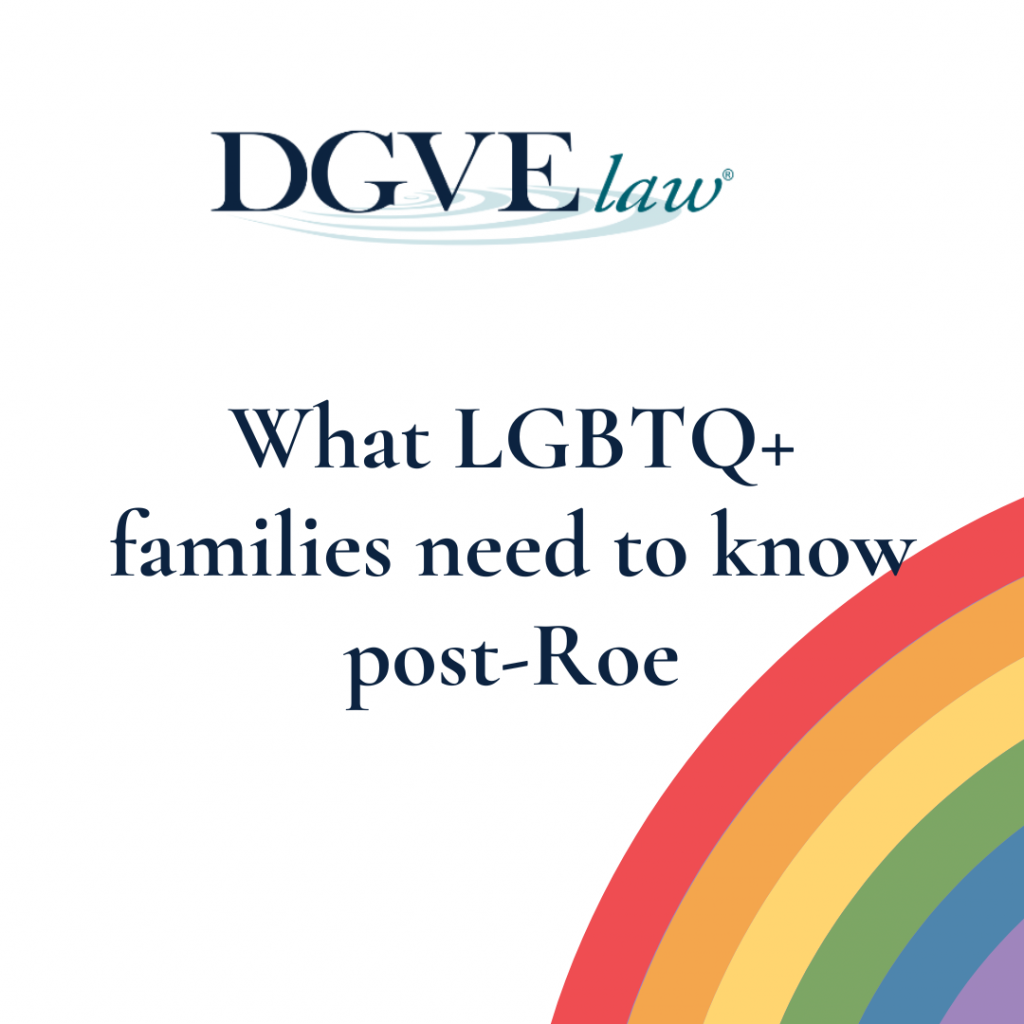How LGBTQ+ Individuals and Families Can Protect Themselves Post-Roe
The Supreme Court’s unprecedented overturning of about a half-century of legal precedent from Roe v. Wade, left LGBTQ+ individuals and families worried and confused about what they can do to protect themselves and their families now.
Every adult over the age of 18, including LGBTQ+ adults, should have at least a basic estate plan in place to ensure they get to choose the people with legal authority to make decisions on their behalf. A basic Massachusetts estate plan should include at least some if not all of the following legal documents:
- HIPAA Authorization – to make sure that only the people you trust are able to gain access to your protected medical records and advocate on your behalf with insurance claims
- Health Care Proxy – to make sure the people who know and understand you best are those with legal authority to be with you during your medical care and express your wishes and consent to or refuse treatments, procedures, medications, admissions, and discharges from a hospital, rehabilitation, or other health care facility
- Living Will – to empower the person you want to make decisions around the end of your lifetime to preserve your dignity and honor your wishes
- Declaration of Anatomical Gifts – to clarify who you trust to express your wishes to be an organ donor
- Cremation, Burial Wishes – to provide your loved ones with the peace of knowing what your wishes are and the clarity about which of your loved ones should be handling those final arrangements for you
- Statement of Wishes Regarding Your Electronic Assets Wishes – to make sure the people you trust know how to access your online accounts and what you want done with your social media accounts, websites, photo sharing sites, and so forth
- General Durable Power of Attorney – to make sure the people you trust can access your bank and other financial accounts, pay your bills if you are incapacitated, and use your assets to take care of your home, business, or family as you see fit
- Last Will and Testament– to name the person you trust to access and manage all your personal, real, digital, and other property, wrap up all your financial affairs, appoint a permanent guardian for your minor child(ren), and specify whether any assets that become a part of your probate estate should be distributed to a more private trust or to individuals or entities like charities however you determine appropriate
At DGVE law, everyone is welcome. Contact us now for help with Massachusetts LGBTQ+ wills, trusts, and estate planning or administration and experience greater peace of mind.



